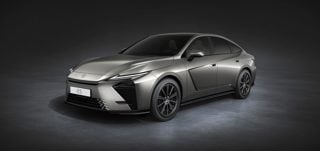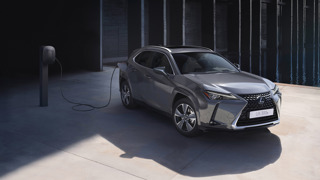Review
Lexus has set a new CO2 emissions benchmark of 99g/km with its third-generation IS sports saloon, the IS 300h, which recently joined the Fleet News test fleet.
It is the first IS to feature a full petrol hybrid system and sees a move away from diesel after a lukewarm response to the second-generation diesel IS, which was only available as a manual.
From an emissions point of view, it’s a wise move as key rival the BMW 320d Efficient Dynamics automatic emits 109g/km, as does the Mercedes-Benz C-Class (although this will fall to 103g/km next year with the launch of the new C-Class).
Lexus says it favours hybrid over conventional diesel engines for four reasons: performance (the electric motors can supplement the petrol engine when required), reduced emissions (NOx as well as CO2), better fuel economy (when the petrol engine is not being used and when working in conjunction with the electric motor, less fuel is required) and driving experience (seamless and linear acceleration thanks to the combined resources of the petrol engine and the electric motor, as well as near-silent drive when decelerating and at low speeds).
I would agree with Lexus on the performance, emissions and driving experience points, but for me the jury is still out on fuel efficiency.
Our test car isn’t brand new and came to us with about 3,000 miles on the clock.
According to the trip information, its best performance over the past couple of months has been 42.8mpg. That’s more than 20mpg below the official combined figure of 65.7mpg.
It will be interesting to see whether fuel efficiency improves over the next month.
Author:
Fleet News
Specs
| Manufacturer | Lexus |
| Model | IS |
| Specification | |
| Model Year | 0.00 |
| Annual VED (Road tax) | £0 |
| BIK List Price | £29,440 |
| CO2 | 99g/km |
| BIK Percentage | 12% |
| Insurance Group | N/A |
| CC | N/A |
| Fuel Type | Petrol Hybrid |
| Vehicle Type | |
| Luggage capacity (Seats up) | N/A |
Running Costs
| P11D | £29,440 |
| Cost per mile | 43.01ppm |
| Residual value | £11,050 |
| Insurance group | N/A |
| Fuel Type | Petrol Hybrid |
| Cost per mile | 0.00ppm |
| Fuel | 0.00ppm |
| Depreciation | 0.00ppm |
| Service maintenance and repair | 0.00ppm |
Info at a glance
-
P11D Price
£29,440
-
MPG
65.7 -
CO2 Emissions
99g/km -
BIK %
12% -
Running cost
3 Year 60k : £11,050 4 Year 80k : £8,300 -
Fuel Type
Petrol Hybrid




















Login to comment
Comments
No comments have been made yet.